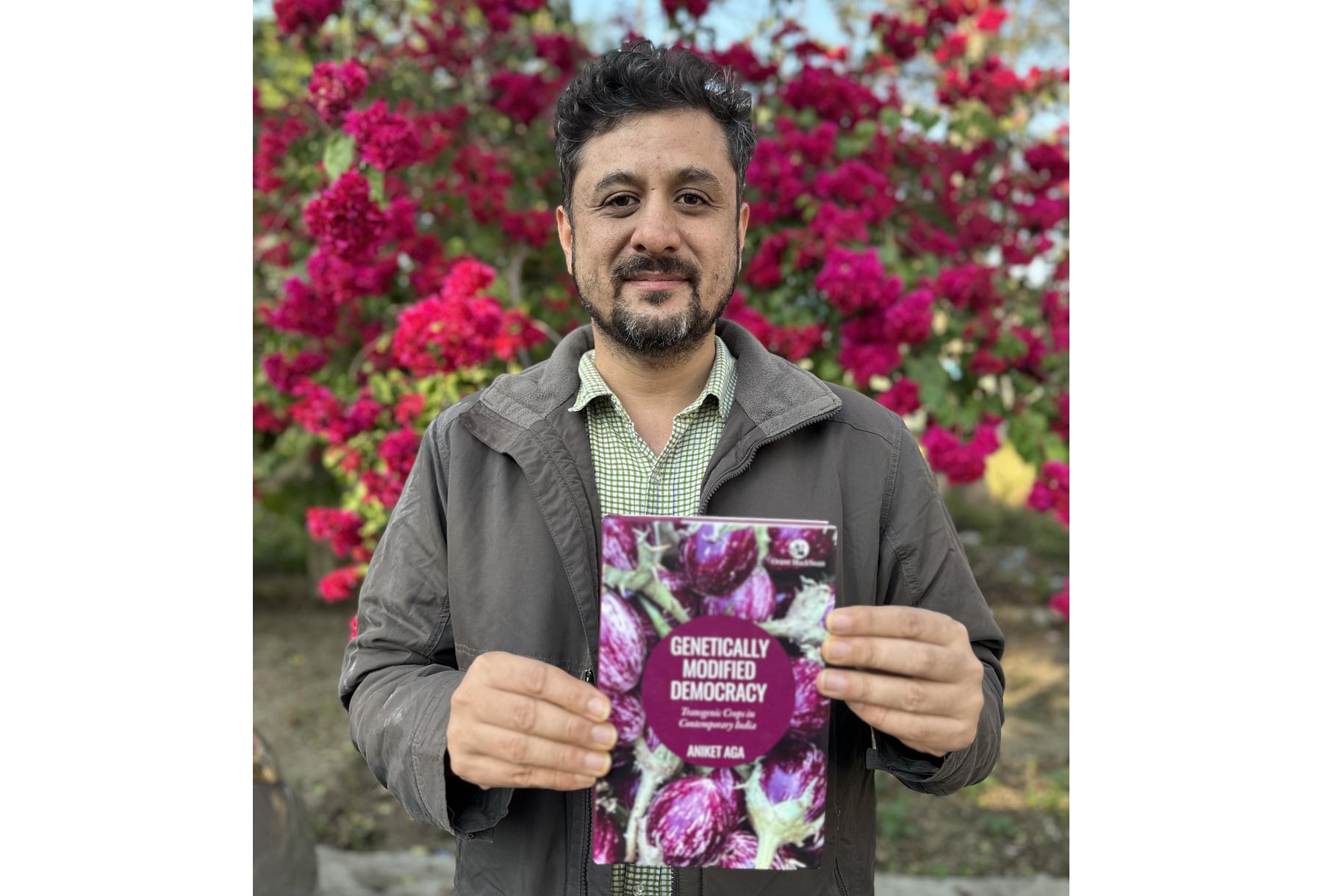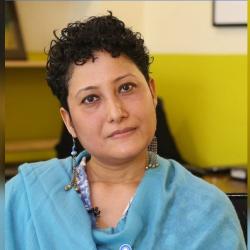Dibrugarh: Prof. Chandan Kumar Sharma from Tezpur University hosted the Northeast release of Yale University Press' award-winning Genetically Modified Democracy at Dibrugarh University on Friday. The book release was part of a three-day workshop called Sustainable Futures: Agriculture, Ecology and Conservation in Northeast India. It took place on December 14-16 in Guwahati and Dibrugarh University.
Dr. Aniket Aga is an associate professor of environmental studies at Ashoka University. His research interests are in science and technology studies, democratic politics, and agrarian studies. He works on questions of environmental justice, food democracy, and sustainable agriculture. The South Asian edition of his book was released by Orient BlackSwan in December 2021. Since its publication, the book has been exceptionally well received. Anthropologist Jacob Richardson suggests that the book provides “plenty of food for thought and a fresh perspective on a long-studied debate”; and Abby Kinchy, sociologist of science, suggests that the book should be “required reading” for anyone making political points about GM crops based on the Indian experience.
In November 2022, Genetically Modified Democracy won the ‘Fleck Prize’ awarded by the international Society for Social Studies of Science which recognizes outstanding work in the area of Science and Technology Studies. In its award citation, the prize committee stated that the book “is a masterful and thoroughly researched account of the making of GMO biotechnology in India and the concurrent emergence of novel matters of concern and governance forms fueled by calls for equity and justice.”
At the book release, reiterating words from his book, Dr. Aniket Aga said, “Our focus must remain on urgent questions of food democracy, agricultural sustainability, health, and justice, rather than any one particular technology.” In his book discussion, Prof. Chandan Kumar Sharma added, “Land is becoming commodified increasingly in the region. It poses a great challenge to the biodiversity in the hills, the crops that people cultivate, and will accentuate the problem of food insecurity. The production, consumption, and preservation of food often involves the local community. Therefore, the whole rhythm of the community might also be affected when food cultures disappear.”
Last month, the Assam Government launched the Assam Millet Mission encouraging farmers to diversify crops and expand into palm farming, lemon, bhut jholokia, and joha rice. While crop diversification is important for farm resilience, it must be guided by agro-ecological suitability, and must build on the working knowledge of farmers and farm labourers, especially women, and their culture of seeds, biodiversity, and food.
This year, the Assam government aims to procure 10 lakh MT of rice directly from farmers with a minimum support price of INR 2040 per quintal. In 2021-22, it procured over 5.65 lakh MT of rice to boost farmer income and assure a fair price. However, this accounted for a meagre 43,000 farmers vis-à-vis over 27 lakh farmers in the state. The government needs to find ways to better support farmers, particularly those growing food crops: through schemes, subsidies, insurance, and prices. Shattered supply chains during the pandemic have left many farmers and their families struggling to cope.
Photo: Mirza Zulfiqur Rahman
- 25386 reads









Add new comment